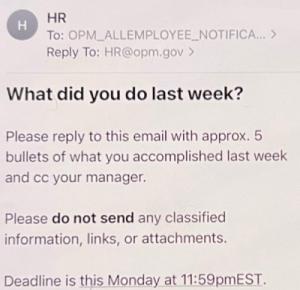Nobody likes a Bad Boss. Liberals don’t like Bad Bosses. Conservatives don’t like bad bosses. It’s one of the very few things that unites all of America.
Well, all of America except for the Bad Bosses themselves.

I’m not talking about angry bosses, or strict bosses, or hard-ass bosses, or passive-aggressive bosses, or grumpy bosses who growl at you all day and never seem to have a positive word about anything. Those can all be unpleasant, but they’re not necessarily Bad Bosses. For all their abrasive or even abusive qualities, they may still understand your job and why you do it and they may still allow you to do it without getting in the way.
That’s the defining characteristic of Bad Bosses. They do not understand your job and they interfere with your ability to get it done.
In the mind of a Bad Boss it works something like this: I am a boss and, therefore, I am important and what I do is important. You are not a boss, and therefore whatever it is that you do must not be important because you are not important. And therefore I do not need to concern my important self with understanding whatever unimportant thing it is that you do or why our company bothered hiring unimportant people like you to do such unimportant things.
Sometimes it’s fear more than arrogance — fear that admitting they don’t fully understand the work you do would somehow undermine their “authority.” But that fear leads them to the same place of dismissive disregard and interference.
It’s that contemptuous disregard and interference that makes Bad Bosses such a nightmare. It doesn’t matter if your job is simple or complex, if it’s humble or prestigious — you’re doing it because it needs to be done. The Bad Bosses who don’t understand that it needs to be done, and who therefore get in the way of getting it done, make it nearly impossible to do your job. And make it entirely impossible to do your job well.
That’s infuriating. Apart from pay, the main factor in whether or not people like their jobs is whether or not they know they’re good at them. Most people want to do their jobs well. Bad Bosses prevent them from doing that. And so most people hate Bad Bosses. This is correct and proper and appropriate. It is right, and a good and joyful thing, always and everywhere, to hate Bad Bosses. This hate is, after all, reciprocal. We hate them because they first hated us.
 Elon Musk is the archetypal Bad Boss.
Elon Musk is the archetypal Bad Boss.
On Saturday night — Saturday night — Musk sent an email to every federal employee in every agency of the executive and judicial branch that he could find an email for, asking for “5 bullets” summarizing what they did over the past week.
The email, sent from “[email protected],” had the subject line “What did you do last week?” and the body of it, in its entirety, read:
Please reply to this email with approx. 5 bullets of what you accomplished last week and cc your manager.
Please do not send any classified information, links, or attachments.
Deadline is this Monday at 11:59pmEST.
This went to every soldier, sailor, Marine, health inspector, FBI agent, park ranger, marshall, district judge, FDA scientist, trade negotiator, embassy staff, spy, secretary, VA nurse, archivist, cafeteria worker, and astronaut.
The email was preceded by a threat, announced only on Musk’s social media account on Twitter: “All federal employees will shortly receive an email requesting to understand what they got done last week. Failure to respond will be taken as a resignation.”
Dumb request followed by angry ultimatum. That’s Bad Boss behavior, but the real clincher is Musk’s revealing use of “understand.” He is “requesting to understand” because he absolutely does not understand what anyone in the federal government — soldier, sailor, Marine, inspector, agent, ranger, etc. — actually does. Or how or why they do it.
But this “request for understanding” is also a disrespectful refusal to understand. It suggests that whatever unimportant things you unimportant people do could not possibly require more than “5 bullets” to fully describe. And it suggests that upon receipt of these millions of emails he will be, as he is now, fully capable of evaluating the worth and necessity and performance of every single one of those jobs.
It’s not just that everyone is already familiar with this exact form of Bad Boss behavior, but that most Americans have personal experience with precisely this Bad Boss move. It’s the time-sucking, time-wasting “time tracking” that every “corporate efficiency” consultant introduces with great fanfare and talk of ultimatums before it gets abandoned a few weeks later once even the dimmest of the bosses comes to realize its a massive increase in inefficiency.
This, again, is part of the definition of a Bad Boss — sneering contempt for whatever it is that you do resulting in interference with your ability to do it. This specific form of interference is universally despised and universally recognized as evidence — as proof — that the Bad Boss implementing it is not merely a jerk but also completely out of ideas and incapable of coming up with any new ones.
Musk’s status as the Worst of All Bad Bosses was reaffirmed by the apparently deliberate confusion and contradiction sparked by his Saturday night email:
By Monday, just 48 hours after an email from Mr. Musk with the subject line “What did you do last week?” landed in the email boxes of millions of federal workers, personnel officials proclaimed the “request” to be voluntary even as Mr. Musk renewed his demand. Many federal workers were left completely confused by the flip-flopping.
Several agencies quickly sent out emails telling their employees they did not need to provide the five bullet points about their activity that Mr. Musk wanted.
“There is no H.H.S. expectation that H.H.S. employees respond to O.P.M., and there is no impact to your employment with the agency if you choose not to respond,” said an email sent to employees at the Department of Health and Human Services, referring to the agency that sent Mr. Musk’s request, the Office of Personnel Management.
The Department of Health and Human Services added that anyone who wanted to respond should “assume that what you write will be read by malign foreign actors and tailor your response accordingly.”
At virtually the same time that employees were told a response was no longer necessary, Mr. Trump weighed in during a visit with President Emmanuel Macron of France, praising Mr. Musk’s demand as “genius” and saying that employees who did not respond would be “semi-fired” or “fired.”
Late Monday evening, Mr. Musk offered another twist on his social media site.
“Subject to the discretion of the [p]resident, they will be given another chance,” Mr. Musk wrote, apparently referring to federal employees who did not respond to his email by his original deadline of Monday at midnight. “Failure to respond a second time will result in termination.”
That’s not true either, as any such termination — of a drill sergeant or of a district judge or of a janitor in an office building — would violate a score of civil service laws written to protect government workers, and the work they do, and to avoid the kind of flagrant corruption that comes from making federal jobs a spoils system for cronies and second-cousins and hunting buddies.
But my point here is not that Musk is trampling on laws and the constitutional separation of powers, my point here is that Musk stands fully exposed as a gleeful, proud Bad Boss.
Everyone sees it. And everyone hates it.
“Please reply to this email with approx. 5 bullets of what you accomplished last week and cc your manager.” Everybody hates that guy.
Maria Kabas thinks this whole weekend of confusion may have been an act of psychological warfare by Musk and Project 2025 architect Russell Vought in pursuit of that plan’s aim to massively reduce the federal workforce by attrition:
In a video of a 2023 speech given by Vought at a private event released by ProPublica this past October, he can be heard saying he hoped his approach to running the government would have the following impact: “We want the bureaucrats to be traumatically affected. When they wake up in the morning, we want them to not want to go to work, because they are increasingly viewed as the villains. We want their funding to be shut down. … We want to put them in trauma.”
Kabas is certainly correct that Musk’s sneering contempt and the tumultuous nonsense and uncertainty he’s creating is traumatic for those federal workers. But what Vought and Musk do not understand is that they are both failing — spectacularly — at the other part of their goal, their desire to paint federal employees “as the villains.” A story with Bad Bosses in it has no room for other villains. By enthusiastically embracing the role of Bad Bosses, Musk and Vought ensure widespread and growing sympathy for the federal workers who have to put up with their foolishness and assholery.
Elon Musk is the second richest man in the world, but even if he had Putin’s money he couldn’t buy his way past the universal, unanimous, visceral revulsion that all the world shares for Bad Bosses.
Musk’s accidental reminder of this common ground also points to a potentially fruitful approach to engaging with our MAGA neighbors and relatives. Tell them a story about a Bad Boss you’ve had. This will make them want to tell you a story about a Bad Boss they’ve had. Listen to their story and agree that, Yup, Bad Bosses like that are terrible.
Then you can both just sit there for a bit, agreeing that, Bad Bosses suck, big time and you can nod or shake your heads at the same things for the same reasons for a moment because you both really, truly do agree on this because you both recognize how very much Bad Bosses really, truly do, in fact, suck.
After that, they might be just a tiny bit more receptive to possibly maybe hearing your side of almost anything else.












